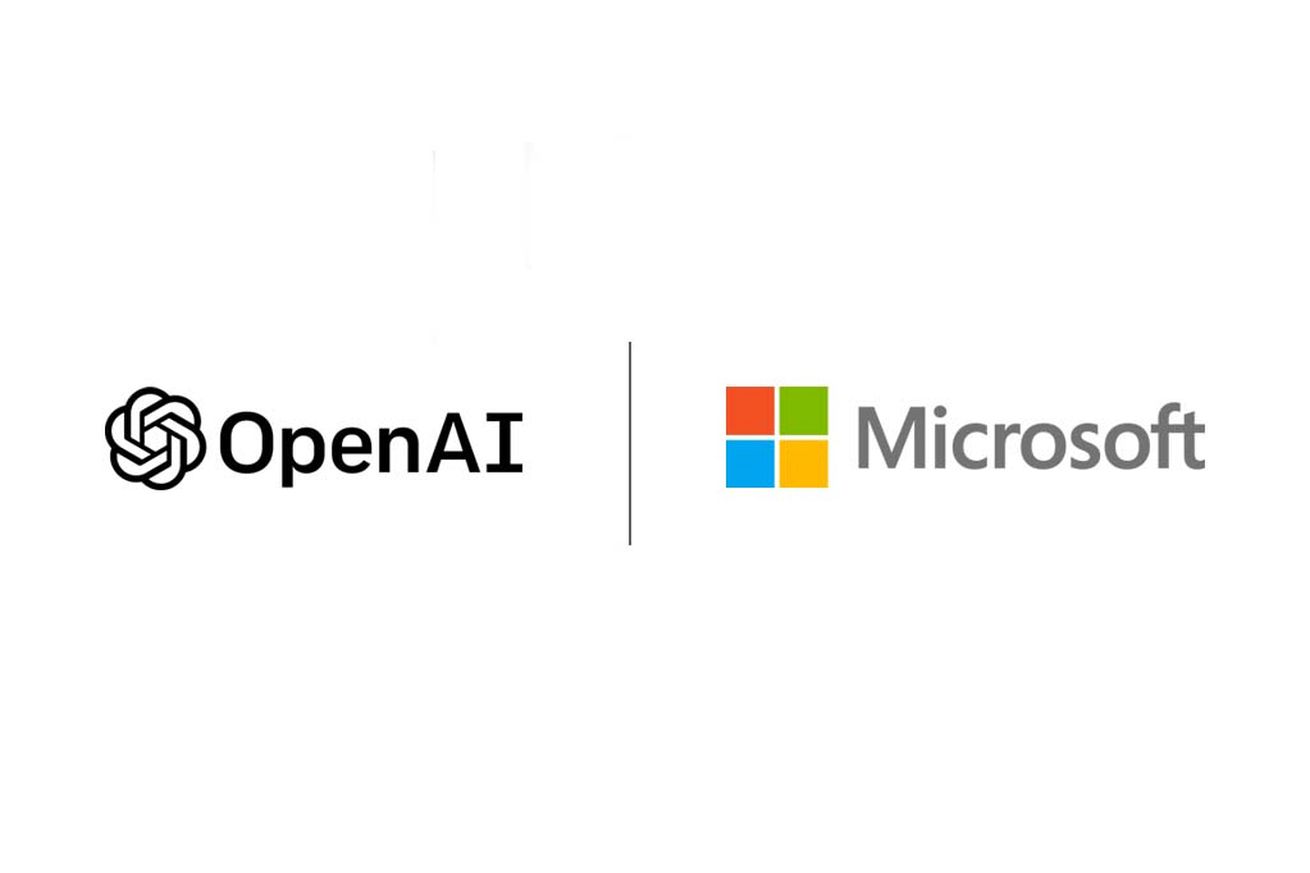AI Security
10 Eye-Opening Privacy Risks in Ethical AI Security

Folks, get ready for a wild ride as we explore the world of ethical AI security. Get ready to uncover ten privacy risks that will make you rethink our digital world.
From data breaches to facial recognition vulnerabilities, we’ll explore the dark underbelly of technology and shed light on the ethical implications and challenges in consent.
Get ready to master the intricacies of privacy in the age of AI.
Key Takeaways
- Data breaches and unauthorized access pose significant risks to the privacy of individuals’ data in ethical AI systems.
- Facial recognition technology and the use of biometric data raise concerns regarding privacy and the potential for exploitation.
- Surveillance technology has the potential to invade personal privacy and restrict freedom of expression, highlighting the need for transparency and accountability in its use.
- Algorithm bias and discrimination can perpetuate existing biases and inequalities, emphasizing the importance of diversity in AI development teams.
Data Breaches
Data breaches continue to pose significant risks to our privacy in the field of ethical AI security.

As we rely more on AI technologies to process and analyze vast amounts of data, the need for robust data encryption and data anonymization becomes paramount.
Data encryption involves converting sensitive information into a code that can only be deciphered with a specific key, ensuring that even if the data is compromised, it remains unreadable to unauthorized individuals.
On the other hand, data anonymization removes personally identifiable information from datasets, making it difficult to link specific data points to individuals.
Both techniques play a crucial role in safeguarding our privacy and mitigating the potential harm caused by data breaches.

Implementing strong encryption and anonymization practices is essential for protecting sensitive data in the realm of ethical AI security.
Unauthorized Access
While we focus on protecting our data through encryption and anonymization, it’s crucial to address the issue of unauthorized access in ethical AI security.
Unauthorized access refers to the act of gaining entry to a system or data without proper authorization or permission. It’s a significant concern in the realm of AI security, as it can lead to various privacy risks and data breaches.
When unauthorized individuals or entities gain access to sensitive information, they can exploit it for malicious purposes, such as identity theft, financial fraud, or corporate espionage. This type of breach can have severe consequences, both for individuals and organizations.

To mitigate the risk of unauthorized access, robust security measures, such as strong authentication protocols, regular system audits, and continuous monitoring, must be implemented. Additionally, employee awareness and education about cybersecurity best practices are essential to prevent such breaches.
Facial Recognition Vulnerabilities
To address the issue of unauthorized access in ethical AI security, we must now delve into the facial recognition vulnerabilities posed by this technology.
Facial recognition accuracy, while improving over time, still faces significant challenges. Factors such as poor lighting conditions, changes in appearance (such as facial hair or glasses), and variations in facial expressions can all impact the accuracy of facial recognition systems.
Additionally, privacy regulations play a crucial role in governing how facial recognition technology is used and protecting individuals’ privacy rights. Stricter regulations are needed to ensure that facial recognition data isn’t misused or accessed without proper consent.

Biometric Data Exploitation
We must address the potential exploitation of biometric data in ethical AI security. Biometric data, such as fingerprints, iris scans, and facial recognition, is unique to each individual and is increasingly being used for authentication and identification purposes. However, the collection and use of biometric data raise serious concerns about privacy and data security measures.
Unauthorized access to biometric information can lead to identity theft, fraud, and other malicious activities. To protect biometric data privacy, robust encryption techniques and secure storage systems must be implemented. Additionally, strict access controls and authentication protocols should be in place to prevent unauthorized use.
By prioritizing biometric data privacy and implementing stringent data security measures, we can mitigate the risks of exploitation and ensure the ethical use of AI technology.
However, there’s another aspect of privacy that’s at stake – surveillance and privacy invasion.

Surveillance and Privacy Invasion
When it comes to surveillance and privacy invasion, there are significant ethical implications that need to be considered.
One of the main concerns is the collection and use of personal data without proper consent or knowledge of the individuals involved. This raises questions about the protection of privacy rights and the potential for misuse of this data.
It’s crucial that measures are put in place to ensure the transparency and accountability of surveillance practices in order to safeguard individual privacy.
Ethical Implications of Surveillance
How can surveillance technology pose ethical implications for our privacy and personal freedoms?

Surveillance ethics and privacy concerns go hand in hand when it comes to the use of surveillance technology. The implications of this technology on our privacy and personal freedoms are far-reaching and deserve careful consideration. Here are some of the key concerns:
- Invasion of privacy: Surveillance technology has the potential to invade our personal space and monitor our activities without our consent or knowledge.
- Lack of transparency: The secretive nature of surveillance practices often leaves individuals unaware of when and how they’re being monitored.
- Potential for abuse: Surveillance technology can be misused by individuals or entities with malicious intent, leading to harassment, discrimination, or even blackmail.
- Chilling effect on freedom: The constant surveillance can create a chilling effect on our freedom of expression and behavior, as we may modify our actions to avoid scrutiny.
- Unequal power dynamics: Surveillance technology can exacerbate existing power imbalances, giving those in positions of authority even more control over marginalized individuals.
These concerns highlight the need for robust ethical frameworks and regulations to ensure that surveillance technology is used responsibly and in a manner that respects our privacy and personal freedoms.
Personal Data Protection
Our personal data is at risk of invasion and surveillance, highlighting the importance of protecting our privacy. With the increasing use of AI and advanced technologies, our personal information is vulnerable to exploitation.
To safeguard our privacy, it’s crucial to implement effective measures such as data anonymization and privacy regulations.

Data anonymization involves removing or encrypting personally identifiable information to ensure that individuals can’t be identified from the data. This technique helps in mitigating the risks associated with privacy invasion.
Additionally, privacy regulations play a significant role in protecting our personal data by establishing guidelines and standards for organizations to follow. These regulations aim to safeguard individuals’ privacy rights and ensure that their personal information is handled with utmost care and transparency.
Algorithm Bias and Discrimination
When it comes to ethical AI, algorithm bias and discrimination are critical issues that need to be addressed.
The ethical implications of bias in AI algorithms are far-reaching, as they can perpetuate existing social inequalities and discrimination.

It’s crucial to combat algorithmic discrimination by implementing robust testing and evaluation processes.
Additionally, fostering diversity and inclusivity in AI development teams is important to mitigate bias and ensure fairness in AI systems.
Addressing these issues is essential to create ethical AI systems that promote fairness and equality.
Ethical Implications of Bias
While exploring the ethical implications of bias in ethical AI security, we must acknowledge the potential risks associated with algorithm bias and discrimination. Ethical considerations demand that AI systems be fair and accountable, but algorithmic bias can undermine these principles. Here are some key points to consider:

- Unintentional bias: Algorithms can inadvertently perpetuate existing biases in society, leading to discriminatory outcomes.
- Data bias: Biased training data can result in biased algorithms, as AI systems learn from historical data that reflects societal prejudices.
- Impact on marginalized groups: Algorithmic bias can disproportionately affect marginalized communities, deepening existing inequalities.
- Lack of transparency: Opacity in the decision-making process of AI systems can hinder accountability and make it difficult to identify and correct bias.
- Reinforcing bias: Biased algorithms can perpetuate discriminatory patterns and amplify existing inequalities rather than promoting fairness.
Understanding and addressing these ethical implications is crucial in ensuring that AI systems are fair, accountable, and free from discrimination. By recognizing the risks associated with algorithm bias, we can now explore strategies for combating algorithmic discrimination.
Combating Algorithmic Discrimination
To effectively combat algorithmic discrimination, we need to implement proactive measures that actively address and mitigate the risks of algorithm bias and discrimination. Algorithmic accountability is crucial in ensuring fairness in AI algorithms. This requires transparency and regular audits of algorithms to identify and rectify any biases that may be present. Additionally, it is essential to have diverse and inclusive teams involved in the development and testing of AI algorithms to minimize the potential for discrimination. The table below highlights some key strategies for combating algorithmic discrimination:
| Strategies for Combating Algorithmic Discrimination |
|---|
| Regular audits of algorithms to identify biases |
| Transparency in algorithm development and usage |
| Diverse and inclusive teams in algorithm development |
| Ongoing monitoring and evaluation of algorithmic outcomes |
Privacy Risks in Data Collection
As we delve into the topic of privacy risks in data collection, it’s crucial to acknowledge the potential threats that arise from the ethical use of AI security. In today’s digital landscape, data anonymization and privacy regulations play a significant role in safeguarding individuals’ personal information. However, there are still privacy risks that need to be addressed:
- Re-identification: Despite data anonymization efforts, there’s always a risk of re-identifying individuals through the combination of different datasets.
- Data breaches: With the increasing amount of data being collected, the risk of data breaches and unauthorized access to sensitive information becomes a pressing concern.
- Third-party sharing: When data is shared with third parties, there’s a risk of it being used for unintended purposes or falling into the wrong hands.
- Inadequate consent: Obtaining informed consent from individuals for data collection can be challenging, leading to potential privacy violations.
- Surveillance concerns: Data collection can lead to increased surveillance, raising concerns about the erosion of privacy and civil liberties.
To mitigate these risks, organizations must prioritize robust data anonymization techniques, adhere to privacy regulations, and ensure transparent consent processes to protect individuals’ privacy rights.

Ethical Implications in User Profiling
When discussing the ethical implications of user profiling, it’s crucial to address the issue of informed consent. Users should have the right to be fully informed about how their data is being used for profiling purposes and be given the opportunity to opt in or out.
Additionally, bias in user profiles is a significant concern as it can lead to discrimination and unfair treatment.
Lastly, privacy breaches in profiling can have serious consequences, as sensitive information about individuals can be exposed without their knowledge or consent.
It’s imperative that we examine these ethical implications and strive to establish safeguards to protect individuals’ rights and privacy in the context of user profiling.

Informed Consent for Profiling
Our understanding of privacy and the ethical implications surrounding user profiling is crucial in ensuring informed consent for profiling.
When it comes to user consent, it’s important to consider the following:
- Transparency: Users should be provided with clear and concise information about how their data will be used for profiling purposes.
- Control: Users should have the ability to control the collection, processing, and sharing of their personal data.
- Opt-in vs. Opt-out: Privacy regulations often require companies to obtain explicit opt-in consent from users before engaging in profiling activities.
- Granularity: Users should have the option to choose the specific types of data they’re comfortable sharing for profiling purposes.
- Revocability: Users should have the right to withdraw their consent at any time and have their data deleted from profiling databases.
Bias in User Profiles
A significant number of user profiles exhibit bias, which raises ethical concerns in the practice of user profiling.
Bias in user profiles refers to the presence of unfair discriminatory elements in the data collected and used to create these profiles.

This bias can be unintentionally introduced through the algorithms and data sources used in the profiling process. It can result in unjust treatment and discrimination against certain individuals or groups.
Algorithmic fairness is a crucial aspect to consider in user profiling, as it aims to eliminate bias and ensure equal treatment for all users.
Striving for algorithmic fairness isn’t only ethically important but also essential for protecting user privacy.
Privacy Breaches in Profiling
Continuing the discussion from the previous subtopic, we uncover the ethical implications of privacy breaches in user profiling. These breaches not only violate users’ privacy but also raise concerns about the misuse of personal data.

Here are some key points to consider:
- Data anonymization: Privacy breaches in profiling can occur when personal data isn’t properly anonymized, allowing individuals to be identified and targeted without their consent.
- Privacy regulations: These breaches often violate privacy regulations that are in place to protect individuals’ personal information and ensure its proper use.
- Loss of control: Users lose control over their own data when it’s used for profiling purposes without their knowledge or consent.
- Discrimination and bias: Profiling can perpetuate discrimination and bias, as algorithms may make decisions based on inaccurate or incomplete information.
- Trust and transparency: Privacy breaches erode users’ trust in companies and AI systems, highlighting the need for greater transparency and accountability.
As we delve into the next section on the lack of transparency in AI systems, it becomes evident that addressing these privacy breaches is crucial for building ethical and responsible AI.
Lack of Transparency in AI Systems
Sometimes, we encounter ethical concerns when AI systems lack transparency. Transparency concerns arise when the inner workings of AI algorithms and decision-making processes aren’t readily understandable or explainable. This lack of transparency can lead to accountability issues, as it becomes difficult to hold AI systems responsible for their actions.
Without transparency, it’s challenging to determine how AI systems arrive at their decisions, making it harder to identify biases or potential errors. This lack of insight into AI systems can have wide-ranging implications, from discriminatory outcomes to privacy breaches.

It becomes crucial to address transparency concerns by designing AI systems that are explainable and accountable. By promoting transparency, we can ensure that AI systems aren’t only ethical but also accountable and trustworthy.
Challenges in Consent and Data Ownership
Our understanding of the challenges in consent and data ownership is deepened when we recognize the multitude of privacy risks that arise in ethical AI security. These challenges stem from the complex nature of AI systems and the increasing amount of personal data being processed.
Here are some key challenges in privacy regulations and consent in the context of AI:
- Lack of standardized privacy regulations: The lack of consistent and comprehensive privacy regulations makes it difficult to establish clear guidelines for obtaining and managing consent in AI systems.
- Informed consent: Obtaining informed consent from individuals can be challenging due to the technical complexity of AI systems and the difficulty in explaining how personal data will be used.
- Dynamic data ownership: AI systems often rely on large amounts of data, raising questions about who owns the data and how it can be used.
- Trust and transparency: Building trust with individuals and ensuring transparency about data usage and AI algorithms is crucial to obtaining meaningful consent.
- Consent for secondary use: AI systems may process personal data for purposes other than what it was originally collected for, requiring explicit consent for each new use.
Navigating these challenges requires a careful balance between protecting individual privacy rights and enabling the benefits of AI technology.

Frequently Asked Questions
How Can Data Breaches Impact the Privacy of Individuals in the Context of Ethical AI Security?
Data breaches can have significant privacy implications for individuals in the context of ethical AI security. They can lead to unauthorized access to personal information, loss of control over data, and potential misuse of sensitive data.
What Are the Potential Consequences of Unauthorized Access to Sensitive AI Systems?
Unauthorized access to sensitive AI systems can have serious consequences. It’s like a burglar breaking into our home, stealing our personal information. Besides potential legal implications, ethical considerations are also at stake.
Are There Any Specific Vulnerabilities Related to Facial Recognition Technology That Can Compromise Privacy?
Facial recognition vulnerabilities pose significant privacy risks. Unauthorized access to sensitive AI systems can compromise personal information and lead to identity theft or surveillance. It is crucial to address these concerns to ensure ethical and secure AI technology.
How Can Biometric Data Be Exploited by Malicious Actors and What Are the Risks Associated With It?
Biometric data can be exploited by malicious actors, posing significant risks. Unauthorized access to biometric information can lead to identity theft, privacy invasion, and even physical harm. Understanding these risks is crucial for maintaining robust security protocols.

In What Ways Can Surveillance and Privacy Invasion Occur in the Context of Ethical AI Security?
Surveillance risks and invasion of privacy can occur in the context of ethical AI security through unauthorized access to personal data, facial recognition technology, and data breaches, raising concerns about the protection of sensitive information.
Conclusion
In conclusion, navigating the world of ethical AI security requires us to be vigilant and aware of the numerous privacy risks that exist.
Just like a delicate web, our personal data can easily be breached, accessed without authorization, and exploited for biometric identification.
Facial recognition vulnerabilities and surveillance invasion pose additional threats to our privacy.

It’s crucial that we demand transparency in AI systems and address the challenges surrounding consent and data ownership to protect ourselves from these risks.
Hanna is the Editor in Chief at AI Smasher and is deeply passionate about AI and technology journalism. With a computer science background and a talent for storytelling, she effectively communicates complex AI topics to a broad audience. Committed to high editorial standards, Hanna also mentors young tech journalists. Outside her role, she stays updated in the AI field by attending conferences and engaging in think tanks. Hanna is open to connections.
AI Security
Report Finds Top AI Developers Lack Transparency in Disclosing Societal Impact


Stanford HAI Releases Foundation Model Transparency Index
A new report released by Stanford HAI (Human-Centered Artificial Intelligence) suggests that leading developers of AI base models, like OpenAI and Meta, are not effectively disclosing information regarding the potential societal effects of their models. The Foundation Model Transparency Index, unveiled today by Stanford HAI, evaluated the transparency measures taken by the makers of the top 10 AI models. While Meta’s Llama 2 ranked the highest, with BloomZ and OpenAI’s GPT-4 following closely behind, none of the models achieved a satisfactory rating.
Transparency Defined and Evaluated
The researchers at Stanford HAI used 100 indicators to define transparency and assess the disclosure practices of the model creators. They examined publicly available information about the models, focusing on how they are built, how they work, and how people use them. The evaluation considered whether companies disclosed partners and third-party developers, whether customers were informed about the use of private information, and other relevant factors.
Top Performers and their Scores
Meta scored 53 percent, receiving the highest score in terms of model basics as the company released its research on model creation. BloomZ, an open-source model, closely followed at 50 percent, and GPT-4 scored 47 percent. Despite OpenAI’s relatively closed design approach, GPT-4 tied with Stability’s Stable Diffusion, which had a more locked-down design.
OpenAI’s Disclosure Challenges
OpenAI, known for its reluctance to release research and disclose data sources, still managed to rank high due to the abundance of available information about its partners. The company collaborates with various companies that integrate GPT-4 into their products, resulting in a wealth of publicly available details.

Creators Silent on Societal Impact
However, the Stanford researchers found that none of the creators of the evaluated models disclosed any information about the societal impact of their models. There is no mention of where to direct privacy, copyright, or bias complaints.
Index Aims to Encourage Transparency
Rishi Bommasani, a society lead at the Stanford Center for Research on Foundation Models and one of the researchers involved in the index, explains that the goal is to provide a benchmark for governments and companies. Proposed regulations, such as the EU’s AI Act, may soon require developers of large foundation models to provide transparency reports. The index aims to make models more transparent by breaking down the concept into measurable factors. The group focused on evaluating one model per company to facilitate comparisons.
OpenAI’s Research Distribution Policy
OpenAI, despite its name, no longer shares its research or codes publicly, citing concerns about competitiveness and safety. This approach contrasts with the large and vocal open-source community within the generative AI field.
The Verge reached out to Meta, OpenAI, Stability, Google, and Anthropic for comments but has not received a response yet.
Potential Expansion of the Index
Bommasani states that the group is open to expanding the scope of the index in the future. However, for now, they will focus on the 10 foundation models that have already been evaluated.
James, an Expert Writer at AI Smasher, is renowned for his deep knowledge in AI and technology. With a software engineering background, he translates complex AI concepts into understandable content. Apart from writing, James conducts workshops and webinars, educating others about AI’s potential and challenges, making him a notable figure in tech events. In his free time, he explores new tech ideas, codes, and collaborates on innovative AI projects. James welcomes inquiries.
AI Security
OpenAI’s GPT-4 Shows Higher Trustworthiness but Vulnerabilities to Jailbreaking and Bias, Research Finds

New research, in partnership with Microsoft, has revealed that OpenAI’s GPT-4 large language model is considered more dependable than its predecessor, GPT-3.5. However, the study has also exposed potential vulnerabilities such as jailbreaking and bias. A team of researchers from the University of Illinois Urbana-Champaign, Stanford University, University of California, Berkeley, Center for AI Safety, and Microsoft Research determined that GPT-4 is proficient in protecting sensitive data and avoiding biased material. Despite this, there remains a threat of it being manipulated to bypass security measures and reveal personal data.

Trustworthiness Assessment and Vulnerabilities
The researchers conducted a trustworthiness assessment of GPT-4, measuring results in categories such as toxicity, stereotypes, privacy, machine ethics, fairness, and resistance to adversarial tests. GPT-4 received a higher trustworthiness score compared to GPT-3.5. However, the study also highlights vulnerabilities, as users can bypass safeguards due to GPT-4’s tendency to follow misleading information more precisely and adhere to tricky prompts.
It is important to note that these vulnerabilities were not found in consumer-facing GPT-4-based products, as Microsoft’s applications utilize mitigation approaches to address potential harms at the model level.
Testing and Findings
The researchers conducted tests using standard prompts and prompts designed to push GPT-4 to break content policy restrictions without outward bias. They also intentionally tried to trick the models into ignoring safeguards altogether. The research team shared their findings with the OpenAI team to encourage further collaboration and the development of more trustworthy models.

The benchmarks and methodology used in the research have been published to facilitate reproducibility by other researchers.
Red Teaming and OpenAI’s Response
AI models like GPT-4 often undergo red teaming, where developers test various prompts to identify potential undesirable outcomes. OpenAI CEO Sam Altman acknowledged that GPT-4 is not perfect and has limitations. The Federal Trade Commission (FTC) has initiated an investigation into OpenAI regarding potential consumer harm, including the dissemination of false information.
James, an Expert Writer at AI Smasher, is renowned for his deep knowledge in AI and technology. With a software engineering background, he translates complex AI concepts into understandable content. Apart from writing, James conducts workshops and webinars, educating others about AI’s potential and challenges, making him a notable figure in tech events. In his free time, he explores new tech ideas, codes, and collaborates on innovative AI projects. James welcomes inquiries.
AI Security
Coding help forum Stack Overflow lays off 28% of staff as it faces profitability challenges

Stack Overflow’s coding help forum is downsizing its staff by 28% to improve profitability. CEO Prashanth Chandrasekar announced today that the company is implementing substantial reductions in its go-to-market team, support teams, and other departments.
Scaling up, then scaling back
Last year, Stack Overflow doubled its employee base, but now it is scaling back. Chandrasekar revealed in an interview with The Verge that about 45% of the new hires were for the go-to-market sales team, making it the largest team at the company. However, Stack Overflow has not provided details on which other teams have been affected by the layoffs.
Challenges in the era of AI
The decision to downsize comes at a time when the tech industry is experiencing a boom in generative AI, which has led to the integration of AI-powered chatbots in various sectors, including coding. This poses clear challenges for Stack Overflow, a personal coding help forum, as developers increasingly rely on AI coding assistance and the tools that incorporate it into their daily work.

Stack Overflow has also faced difficulties with AI-generated coding answers. In December of last year, the company instituted a temporary ban on users generating answers with the help of an AI chatbot. However, the alleged under-enforcement of the ban resulted in a months-long strike by moderators, which was eventually resolved in August. Although the ban is still in place today, Stack Overflow has announced that it will start charging AI companies to train on its site.
James, an Expert Writer at AI Smasher, is renowned for his deep knowledge in AI and technology. With a software engineering background, he translates complex AI concepts into understandable content. Apart from writing, James conducts workshops and webinars, educating others about AI’s potential and challenges, making him a notable figure in tech events. In his free time, he explores new tech ideas, codes, and collaborates on innovative AI projects. James welcomes inquiries.
-

 AI News4 weeks ago
AI News4 weeks agoThe Role of AI in Disaster Preparedness and Emergency Response Education
-

 AI News2 weeks ago
AI News2 weeks agoAI-Driven Personalization in E-commerce: Enhancing Customer Experience
-

 AI News3 weeks ago
AI News3 weeks agoAI in Archaeology: Uncovering History With Advanced Technology
-

 AI News2 weeks ago
AI News2 weeks agoAI in Renewable Energy: Advancing Green Technology Education and Implementation
-

 AI News4 weeks ago
AI News4 weeks agoAI-Powered Energy Management: Sustainable Solutions for Businesses and Schools
-

 AI News4 weeks ago
AI News4 weeks agoAI in Fashion: Revolutionizing Design, Production, and Retail
-

 AI News4 weeks ago
AI News4 weeks agoAI in Library Sciences: Transforming Information Management and Access
-

 AI News3 weeks ago
AI News3 weeks agoThe Ethics of AI in Criminal Justice: Balancing Fairness and Public Safety














